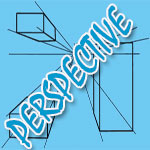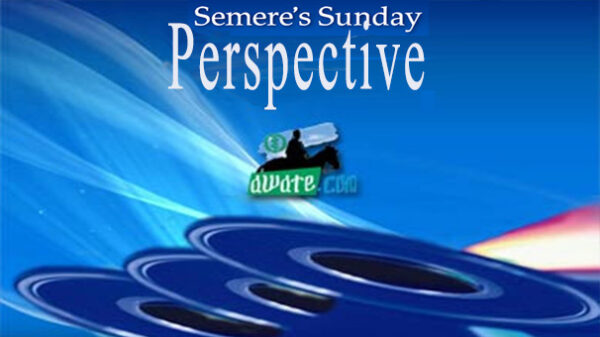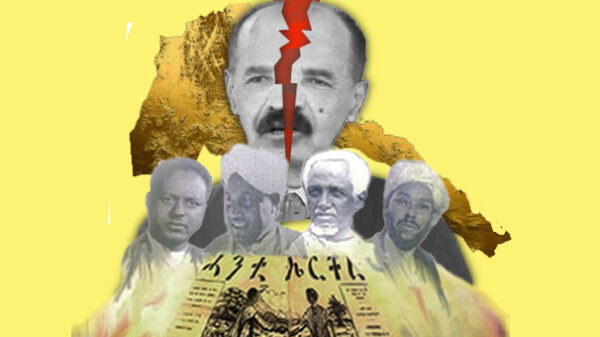Got Dignity?

If you’ve lived in the US as long as I’ve, then, you would remember the old milk commercial. Two simple words followed by a question mark: Got Milk? The commercial is credited for increasing milk sales in the US. The dairy industry later came with an equally catchy message: Milk: it does the body good!
For the purposes of this article, I making slight changes and combining both of them: Got Dignity? Dignity: does the body good! Got Democracy? Democracy: does the body good!
“The Ganges does not leave its course in search of tributaries,” says Gandhi. Likewise, the river of the Eritrean opposition should not leave its course in search of tributaries. It matters not whether those tributaries are committed, good intentioned or allies seeking marriage of convenience. The key is to always ask if those tributaries add on to the Ganges or dilute its Gangesness. There is a good reason why the Eritrean opposition is called Eritrean and an opposition. The two are non-negotiable items and no price can be tagged on them. The soul of the Eritrean opposition must always remain intact.
It is okay to compromise and be flexible on tactics but never on principles. It is those principles and how we remain true to them that defines who we are as a people and country. To be effective, good practical administration and management are necessary, but ultimately meaningless without guiding principles. Without a guiding philosophy, any road leads to anywhere–no redlines what-so-ever. The best measurement of success is not just the direct outcome but the effort that was made to do the right thing. Reaching a destination with a fractured soul is not a recipe for self-respect and pride. Finding a short-cut should not be confused with cutting corners. The former is good but the latter is terrible.
In any movement that aspires to bring an enduring and positive change, the end is always the means, for the means is what lays the foundation of that end. There is nothing that endures without a firm foundation. It is important that the first step in this endeavor, regardless of how small it might be, has to be done right. “For it matters not how small the beginning may seem to be; what is once well done is done forever,” says Thoreau. The power of a small right is the power of an example. It is the same power that transforms a local bus incident into a national civil rights movement. There is something contagious about simple and ordinary people standing up to extraordinary circumstances. It is uplifting and inspiring because it is inherently dignifying. Principles guide us and empower us. In the Bible, God told Joshua to be strong and courageous when facing the enemy. The source of strength and courage for Joshua were the belief in God, the ultimate principle. To sustain or rediscover that strength Joshua has one has to constantly pray.
To rediscover or sustain our principles; and, consequently, our strength and courage, it is very important that we occasionally remind ourselves of why we oppose the regime. It is, definitely, not because we don’t believe the regime is Eritrean or it does not have any right to rule the country. PFDJ is as Eritrean as any of the opposition parties and fronts and it has every right to lead and rule the country, but not without the consent of the Eritrean people. In other words, we oppose it because it is not democratic. Most of the things the PFDJ does, particularly where it matters the most, does not enrich the dignity of the Eritrean citizen. One of the basic functions of democratic governance is to empower the citizen. Independence and autonomy are the hallmarks of democracy. The people have to be free to self-rule themselves. These democratic principles cannot be compromised for any short-term or tactical advantages they might seem to bring. Democracy is the means to the democratic end; expediency cannot override our guiding philosophy.
Democracy like the “Ganges does not leave its course in search of tributaries.” Accountability, transparency and elections are some of the basic procedural requirements. Everything that the opposition does is measured against these basic yardsticks. The Eritrean people cannot expect any organization to offer them what it doesn’t have or what it doesn’t practice. If the raison d’etre of the opposition is democracy, then, its success also depends on it. It has to always breath the oxygen of democracy to not only survive but to thrive in the hearts and minds of the Eritrean people. A pinch of example is better than a gallon of advice. If the democratic house could be built by shouting, then, a donkey would be living in a castle. Bkoka’ida ayHrres bzereba ayngges.
Another basic tenet of democracy is the belief in the individual’s self-worth and dignity; a free and autonomous individual capable of managing one’s affairs. The sanctity, wisdom and self-sufficiency of the individual citizen are the bedrock of democracy. This is why democracy is rule by, from and to the people. The people are capable of managing their own affairs and this is the very reason why power should always reside within them. Sovereignty lies with the people and this power cannot be alienated or outsourced. The reason why all democratic nations have age requirement for political participation is because of the need to discriminate against underage citizens that are not yet matured, independent and autonomous. Democracy is for adults who have the right to elect and be elected. In most democratic countries, adults between the ages of 18 and 24 don’t even have the right to be elected in national or statewide offices. Youth and student union organizations fill this vacuum by preparing them for responsibilities which is one of the hallmarks of adulthood. Treating adults as youth or minors is inherently undemocratic. It is wrong and offensive but passing adults as minors is even worse. Besides being wrong and offensive, it insults peoples’ intelligence. It might seem a clever scheme to the tributaries that want the Ganges to flow off course, control it or think they could nudge it, but to those of us who believe that the “Ganges does not leave its course in search of tributaries” find it patently wrong, and as such it has to be nipped in its bud.
It is a helpful practice to constantly remind ourselves of who the enemy is. Our enemy is the PFDJ system and not the people serving it. Likewise, it is also the system in the opposition that is allowing, otherwise good people, to compromise core principles and not the people making those mistakes that is our enemy. In the words of the Bible, let’s hate the sin and not the sinners.
If, we, as Eritreans believe that we have a right to democracy and are capable of self-rule, then, we cannot outsource our responsibilities and obligations. Everything we do has to enrich our democratic credentials and our dignity as human beings and Eritreans. Non-democrats cannot advocate for democracy. If we fail to internalize the values and virtues of democracy, then, we cannot champion its cause. We’ve to testify and witness that there is no democracy other than democracy and all citizens should be democracy’s messengers. This is something we must say and believe.
There are few things in life that are permanently good and true; and, discovering them is the ultimate wisdom. Consistency is a manifestation of this sense of permanence and it is a virtue. The consistent application of the law, for example, is one of the best safeguards of justice. The best definition of integrity is the consistent adherence to core principles. Integrity is what one does right, according to my son, when no one is watching. When consistency happens; it is a good thing. It means there are few things that are permanent, true and good.
In politics, however, facts change and information are not totally disclosed or easily accessible, and consistency can be a vice; and it is only right that we adjust our views to reflect newly gained facts and perspectives. Compromise in this regard is a good and useful thing. Politics is inherently dialectical and partisanship is a natural outcome. For the sake of a common goal and public good, the parties have to be willing to give up some to gain some. When the giving in is one-sided, it is not a compromise. It is surrender; it’s defeat. There is nobility in compromise but not in unilateral giving in. There are some people in the opposition who have habit of invoking the idea of a compromise in the wrong context.
Principles are not to be compromised, let alone to be surrendered. The ultimate guarantor of peace between people and nations is love and friendship; and having and fostering a good relationship with all neighbors, but particularly with Ethiopia, is of the category that is permanently good and true. All Eritreans should work towards this goal if the dream of peace, prosperity, justice and democracy is to be realized in the Horn of Africa.
I was very aware, in the aftermath of the Badme conflict that the Ethiopian government was busy recruiting new Eritrean opposition groups and resuscitating old ones. I was, however, among a few other Eritreans who, in post September 18, 2001, cautiously but with conviction encouraged and supported the reluctant, mainstream Eritrean opposition groups to establish relations with Ethiopia. Our long-term and strategically oriented advice and encouragement was not, however, a handy excuse of ignoring the prevailing facts between the two countries. Eritreans need to forgive in order to heal but should never forget what has transpired if they are to avoid the mistakes of yesterday. Most of the opposition made the trip to Addis Ababa with caution and prudence. The goal was to work for and represent an Eritrean agenda where the Ethiopians and others can help. The goal was never to be part of an Ethiopian agenda where Eritreans can play a part. Eritreans cannot relinquish ownership of their agenda. The Ethiopians can make recommendations and suggestions to our agenda but they cannot take ownership of it. They are not our leaders and as such they cannot initiate or call meetings for us, determine who participates or dictate the agenda. Doing so undermines the very heart and soul of who we are as Eritreans. It undermines our pride and self-respect. I’m not sure, at this time, if this is a subtle or a callous attack on our dignity as Eritreans and as human beings.
Addis Ababa is not Mecca and Eritreans in the opposition must not feel obligated to make a pilgrimage there. For those of us, and there are many of us who advocate, on principle, a non-violent struggle to bring a democratic change, Ethiopia is not even that important in our overall strategy. Having good relations with Ethiopia is a good thing, particularly in the long-term future, but it is not the-be-all-and-end-all that some corners try to make it to be. What is important is that we remain true to who we are: Eritreans fighting for democracy and these are two principles we cannot compromise for any tactical advantage or expediency.
I don’t see any reason for bragging and gloating in what has taken place in Ethiopia. Our dignity and democracy were the first victims of this undemocratic gathering. If the Eritrean opposition is unable to organize, on its own, this kind of gathering, then, it should not be in this democratic struggle in the first place. I don’t care how the proceedings were conducted and what the so-called-youth eventually agreed upon; it should not have happened in the first place.
But kudos goes to the last congress of EPDP, the Awassa convention and the last youth conference in Washington DC. The first and last were completely self-financed and the majority of the 600 Eritreans who came from all over the world to attend the Awassa convention paid for their own travel expenses. There is dignity in self-sufficiency and in taking ownership of your own affairs and this is what we need to do more of.
Got Dignity? Dignity: does the body good! Got Democracy? Democracy: does the body good!



Awate Forum